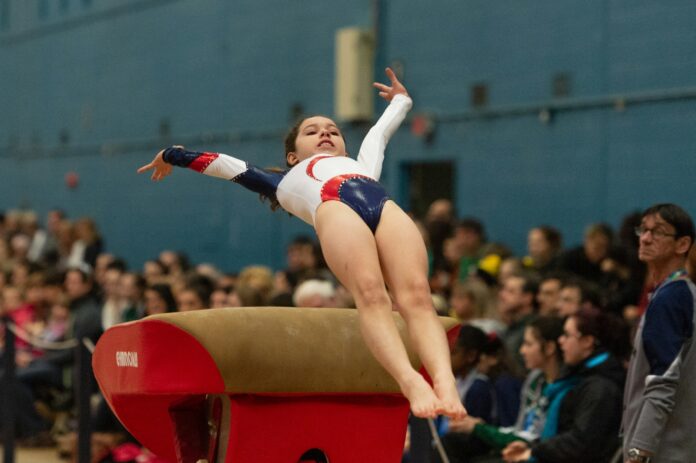Athletic performance is often attributed to rigorous training, discipline, and mental fortitude. However, genetics plays a significant role in determining an individual’s potential in sports. From muscle composition to oxygen efficiency, genetic factors can shape how athletes perform, recover, and adapt to physical challenges.
While genetics isn’t the sole determinant of success, understanding its influence can help tailor training, nutrition, and recovery strategies to maximize athletic potential.
How Genetics Affects Athletic Performance
1. Muscle Fiber Composition
Muscles are composed of two primary types of fibers:
- Type I (Slow-Twitch Fibers): Ideal for endurance activities (marathons, cycling). These fibers resist fatigue and excel in long-duration, low-intensity efforts.
- Type II (Fast-Twitch Fibers): Suited for explosive movements (sprinting, weightlifting). These fibers generate power but fatigue quickly.
Genetics determines the ratio of slow-twitch to fast-twitch fibers. Athletes with a higher percentage of fast-twitch fibers tend to excel in power-based sports, while those with more slow-twitch fibers dominate endurance events.
2. VO₂ Max (Oxygen Uptake Capacity)
VO₂ max is a measure of how much oxygen your body can use during intense exercise.
- Higher VO₂ max = Greater endurance and aerobic capacity.
- Genetics accounts for up to 50% of VO₂ max levels, though training can improve it significantly.
“Endurance athletes often inherit superior cardiovascular efficiency, allowing them to sustain high performance over long periods.”
3. Lactate Threshold and Recovery
Lactate threshold refers to the point at which lactic acid accumulates faster than the body can clear it, causing fatigue.
- Higher Lactate Threshold: Athletes can sustain higher intensities for longer.
- Genetics influences how efficiently muscles process lactate and how quickly they recover post-exercise.
4. Muscle Size and Strength
Genes affect how muscles grow in response to training. Variations in genes like ACTN3 (associated with muscle power) can influence:
- Muscle hypertrophy (growth)
- Strength levels
- Recovery rates
Athletes with favorable versions of ACTN3 tend to perform better in power sports like sprinting and weightlifting.
5. Tendon and Ligament Strength
Genetics can determine the density and elasticity of tendons and ligaments, impacting injury risk and flexibility.
- Some athletes are genetically predisposed to stronger connective tissues, reducing their likelihood of injury.
- Conversely, weaker tendons may lead to higher injury susceptibility, regardless of physical training.
Notable Genes Linked to Athletic Performance
- ACTN3 (“The Sprint Gene”): Found in elite sprinters and power athletes.
- PPARGC1A: Involved in endurance performance and energy metabolism.
- ACE Gene (Angiotensin-Converting Enzyme): Influences cardiovascular efficiency and endurance.
- EPOR: Regulates red blood cell production, affecting oxygen delivery.
👉 While genetics set the foundation, training, nutrition, and mindset build upon this genetic blueprint.
Nature vs. Nurture: Balancing Genetics and Training
Genetics may provide the blueprint, but training consistency, mental resilience, and environment shape athletic potential.
- Elite athletes often combine favorable genetics with relentless training.
- Athletes with less favorable genetics can compensate with superior technique, conditioning, and strategy.
“Talent opens the door, but hard work keeps you inside.”
Training Based on Genetic Strengths
For Power Athletes (High Fast-Twitch Fibers):
- Focus on: Explosive movements (sprints, plyometrics, heavy lifting).
- Training Style: High-intensity, low-rep strength training.
- Recovery: Allow more time for muscle recovery to avoid overtraining.
For Endurance Athletes (High Slow-Twitch Fibers):
- Focus on: Long-distance running, cycling, swimming.
- Training Style: Moderate-intensity, high-volume endurance workouts.
- Recovery: Shorter rest periods but longer-duration training sessions.
Can Genetics Be Overcome?
While genetic limitations exist, training adaptations can significantly improve performance. Muscle growth, cardiovascular efficiency, and mental toughness can all be enhanced with proper training.
- Neuroplasticity and Skill Development: The brain can adapt to develop skills and improve athletic techniques regardless of genetic predisposition.
- Progressive Overload: Gradually increasing intensity and load can stimulate strength and endurance gains, even in those with less genetic advantage.
Nutrition and Genetic Performance
Diet plays a crucial role in optimizing genetic potential.
- Protein Intake: Supports muscle growth and recovery.
- Healthy Fats: Improve hormone balance and energy levels.
- Carbohydrates: Fuel endurance and power-based workouts.
- Micronutrients: Essential for recovery, bone density, and reducing inflammation.
👉 Enhance your nutrition with Myprotein supplements to boost muscle growth and recovery. Explore options at Myprotein.
Supplements That Support Athletic Performance
- Creatine: Increases muscle power and strength.
- Beta-Alanine: Improves endurance by buffering lactic acid.
- BCAAs: Accelerates muscle recovery and reduces soreness.
- Protein Powder: Aids in muscle repair and growth post-training.
👉 Check out performance-boosting Myprotein supplements at Myprotein.
Recovery and Genetic Variation
Recovery is influenced by genetics, but proper rest, nutrition, and active recovery can accelerate the process.
- Sleep Optimization: Supports muscle repair and growth.
- Hydration: Reduces muscle fatigue and prevents cramping.
- Stretching and Mobility: Enhances flexibility and reduces injury risk.
Psychological and Genetic Factors
Mental toughness, focus, and resilience are partially influenced by genetics but heavily shaped by environment and training.
- Mental Training: Visualization, meditation, and goal-setting improve performance regardless of genetic predisposition.
- Confidence and Self-Belief: Critical for outperforming genetic limitations.
News Box: Unlock Your Athletic Potential
For more insights into fitness, health, and performance, visit News Box. Discover practical tips and strategies to enhance athletic ability, whether genetically gifted or driven by determination.
Conclusion: Genetics is the Start – Training is the Path
While genetics provides the foundation for athletic performance, it is training, nutrition, recovery, and mindset that ultimately determine success. Understanding genetic strengths and weaknesses allows athletes to optimize performance, prevent injuries, and achieve their full potential.
“Genes may load the gun, but hard work pulls the trigger.”
👉 Enhance your training and fuel your potential with Myprotein supplements at Myprotein.

